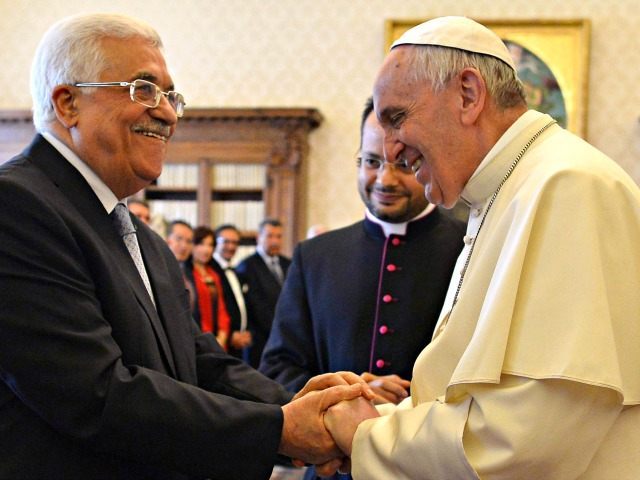ROME — The secretary general of the Palestine Liberation Organization (P.L.O.) contacted the Vatican Wednesday to “inform” of their concerns over possible Israeli annexation of parts of the West Bank.
In a carefully worded communiqué, the Vatican revealed that on Wednesday morning, Saeb Erekat, chief negotiator and secretary general of the P.L.O., telephoned Archbishop Paul Richard Gallagher, the Vatican’s foreign minister.
Mr. Erekat “wished to inform the Holy See about recent developments in the Palestinian territories and of the possibility of Israeli applying its sovereignty unilaterally to part of those territories, further jeopardizing the peace process,” the communiqué said.
In mid-April Prime Minister Benjamin Netanyahu and Blue and White leader Benny Gantz signed a coalition agreement to form a unity government. According to the terms of the deal, the issue of annexation can be voted in the Knesset on July 1 at the earliest, “after discussion between the prime minister and alternate prime minister.”
“The Holy See reiterates that respect for international law and the relevant United Nations resolutions, is an indispensable element for the two peoples to live side by side in two States, within the borders internationally recognized before 1967,” the text stated.
“The Holy See is following the situation closely, and expresses concern about any future actions that could further compromise dialogue,” it continued, “while also expressing its hope that Israelis and Palestinians will be soon able to find once again the possibility for directly negotiating an agreement, with the help of the International Community, so that peace may finally reign in the Holy Land, so beloved by Jews and Christians and Muslims.”
In January 2017, Pope Francis received Palestinian President Mahmoud Abbas in the Vatican for a formal inauguration of the first Embassy of the State of Palestine to the Holy See.
The new Palestinian embassy, said Abbas, “is a sign that the Pope loves the Palestinian people and peace.” The Vatican recognized the state of Palestine about a year and a half ago.
After the meeting, Abbas also said that he hopes “other states will follow the Holy See’s example.”
“We are proud to be the birthplace of Christianity and about having one of the oldest Christian communities in the world,” he said.
The Holy See began referring to Palestine as a “state” in November 2012, when the United Nations voted to recognize it as a nonmember observer state, but it only formally recognized Palestinian statehood in a legal document in May of 2015.
On the other hand, Pope Francis also made news in late 2015 when he declared that attacks on the State of Israel and its right to exist constitute anti-Semitism.
“To attack Jews is anti-Semitism, but an outright attack on the State of Israel is also anti-Semitism,” Francis said in a private audience with delegates from the World Jewish Congress (WJC).
“There may be political disagreements between governments and on political issues, but the State of Israel has every right to exist in safety and prosperity,” he said.
The Holy See established formal diplomatic relations with the State of Israel in 1993, and early the next year the Vatican set up a nunciature in Israel and an Israel established an embassy to the Holy See.

COMMENTS
Please let us know if you're having issues with commenting.